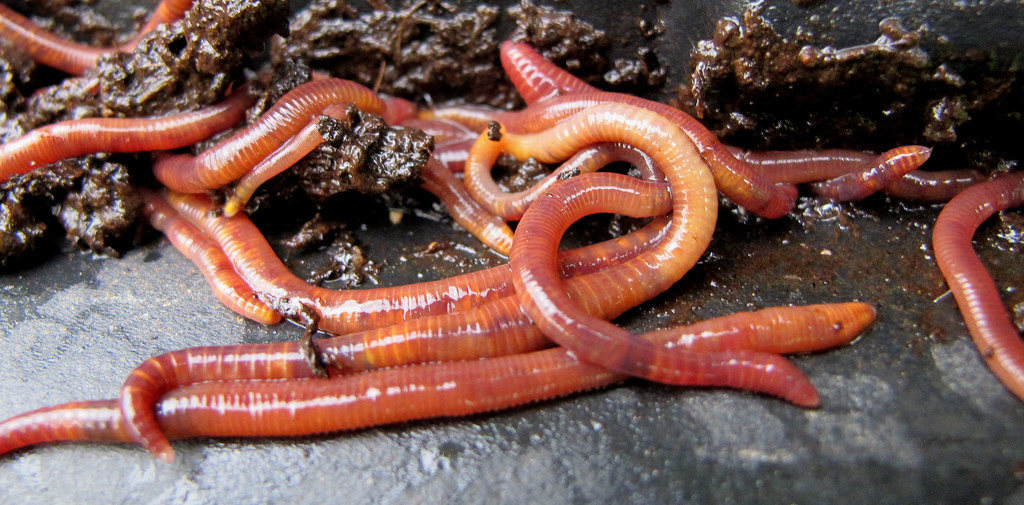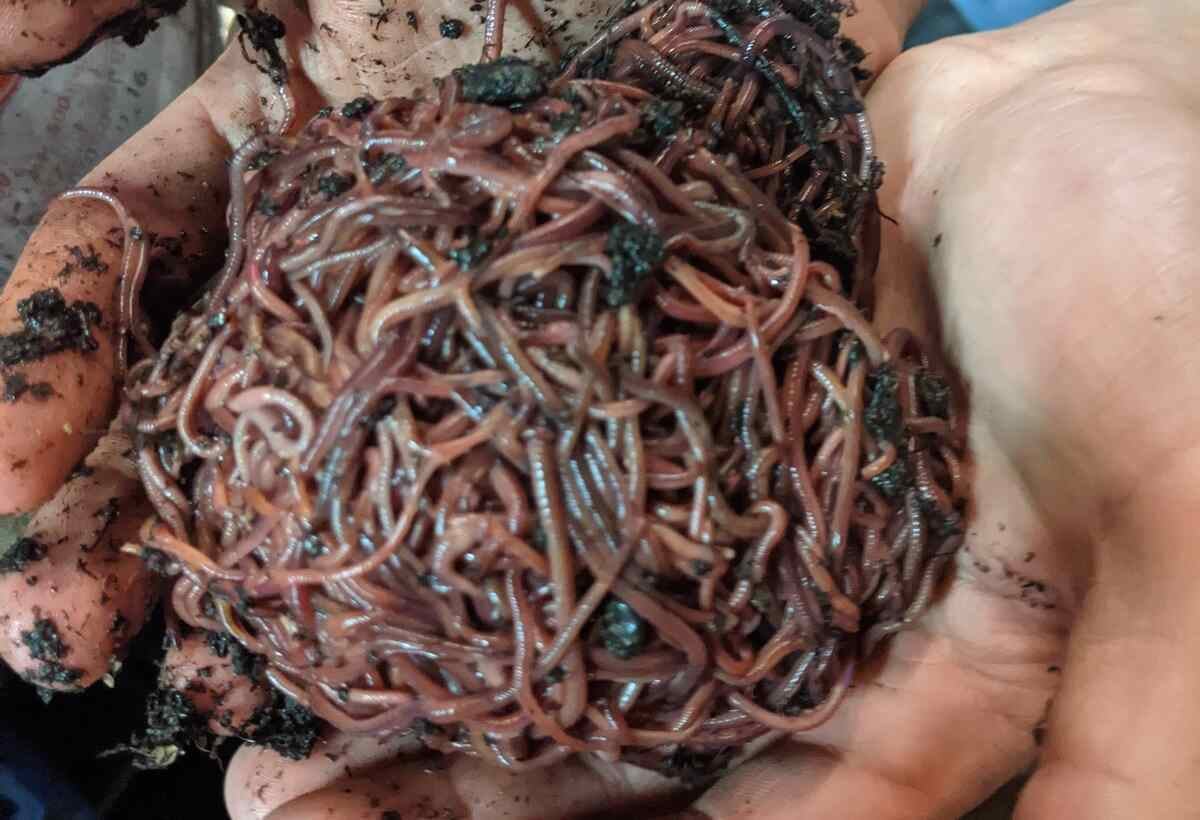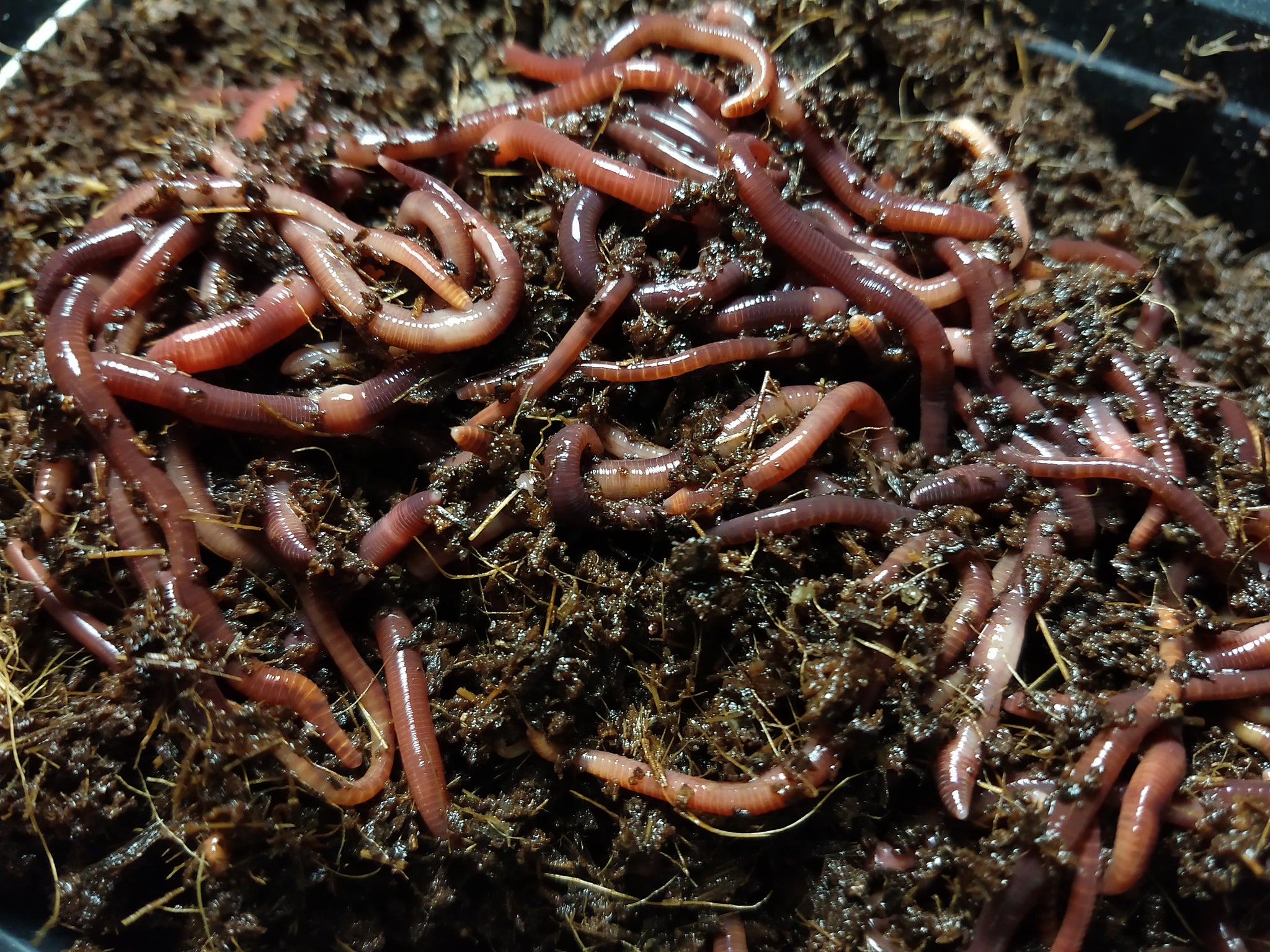Choose Lake Hickory Bait for Fresh Worms, Tackle, and Extras
Choose Lake Hickory Bait for Fresh Worms, Tackle, and Extras
Blog Article
Open the Tricks of Red Wigglers: Your Overview to Composting Success
The integration of red wigglers right into composting techniques offers a significant possibility for improving soil wellness and advertising sustainability. Comprehending their needs and actions is vital for enhancing their potential, from establishing up a suitable worm bin to feeding them the appropriate products.

What Are Red Wigglers?
(Red Wiggler Express)Red wigglers, scientifically called Eisenia fetida, are a species of earthworm largely made use of in composting because of their amazing capacity to decay raw material successfully. These worms are defined by their reddish-brown pigmentation and a segmented body, normally measuring in between 3 to 4 inches in length. Unlike various other earthworm types, red wigglers grow in abundant, organic environments, making them suitable for vermicomposting systems.
Indigenous to The United States And copyright, they are frequently located in rotting fallen leaves and compost stacks, where they play an important duty in nutrient recycling. Their adaptation to residing in a moist, cardio environment enables them to eat large quantities of organic waste, simplifying into nutrient-rich spreadings that enhance dirt health.
Red wigglers replicate quickly, with a single worm qualified of creating several cocoons each week, each having multiple hatchlings. Understanding the biology and behavior of red wigglers is crucial for maximizing their potential in composting applications.
Benefits of Using Red Wigglers
Utilizing the power of red wigglers in composting uses countless benefits that enhance soil health and wellness and advertise sustainable waste administration. These exceptional microorganisms successfully break down organic matter, changing kitchen scraps and yard waste into nutrient-rich vermicompost. This completed item is exceptionally beneficial for plant growth, as it enhances dirt framework, boosts dampness retention, and boosts nutrient availability.

(Red Wiggler Express)Additionally, the visibility of red wigglers in your composting system can speed up the composting procedure, creating premium compost in a portion of the time contrasted to conventional methods. The spreadings generated by these worms are likewise including advantageous microorganisms that additionally enhance the dirt community.
Establishing Up Your Worm Bin
Producing a reliable worm bin is a straightforward process that can significantly improve your composting efforts. The primary step is selecting an ideal container. Worm containers can be made from plastic storage space bins, wood boxes, or readily offered worm bins. Make sure the bin has ample water drainage and ventilation holes to preserve optimum moisture degrees and air movement.
Next, prepare the bed linen product, which offers as the worms' environment. A mix of shredded newspaper, cardboard, and coconut coir works well, supplying a comfy atmosphere for the worms.

Feeding Your Red Wigglers
To guarantee the health and performance of your red wigglers, it is necessary to offer them with a well balanced diet regimen that satisfies their nutritional demands. Red wigglers flourish on a diverse variety of organic products, which not only provide needed nutrients but additionally promote efficient composting.
Beginning by incorporating cooking area scraps such as vegetable peels, fruit cores, and coffee premises. Prevent citrus fruits, onions, and garlic, as these can be detrimental to worm health. Furthermore, present shredded paper, cardboard, and dry leaves to produce a well-aerated environment.
Feeding frequency must be kept track of; usually, worms can take in half their body weight in food weekly. It is essential to avoid overfeeding, as excess food can cause unpleasant odors and bring in insects. A good practice is to include food in percentages, permitting worms to refine it before introducing extra.
Maintaining dampness levels is likewise essential; the bedding must be wet but not soggy. Be certain to regularly check the temperature and pH levels of the bin to make sure an optimum setting for your red wigglers, ultimately enhancing their composting effectiveness.
Harvesting and Making Use Of Garden Compost
A successful composting procedure with red wigglers finishes in the rich, dark compost known as vermicompost, which can significantly enhance dirt wellness and plant development. Gathering this nutrient-dense material normally takes place every 3 to six months, depending on the size of your system and the quantity of natural matter being processed.
To collect, carefully separate the compost next page from the worms and any undecomposed materials. One reliable method involves relocating the components of the bin away and adding fresh bedding and food to the void, encouraging the worms to move. After a few days, the garden compost can be accumulated from the opposite side.
It is necessary to utilize vermicompost appropriately to maximize its advantages. By incorporating vermicompost into your horticulture regimen, you not just reuse organic waste however additionally produce a thriving environment that supports sustainable horticulture practices.
Final Thought
In summary, red wigglers act as remarkable allies in composting initiatives, changing natural waste into nutrient-rich vermicompost (Red Wiggler Express). Their special organic characteristics and reliable waste processing abilities add significantly to sustainable horticulture techniques. By comprehending the optimum conditions for their environment, feeding requirements, and compost harvesting methods, garden enthusiasts can enhance soil wellness and promote plant vitality. Accepting vermicomposting not just reduces land fill waste yet likewise fosters a more ecologically responsible strategy to gardening and resource monitoring.
Report this page